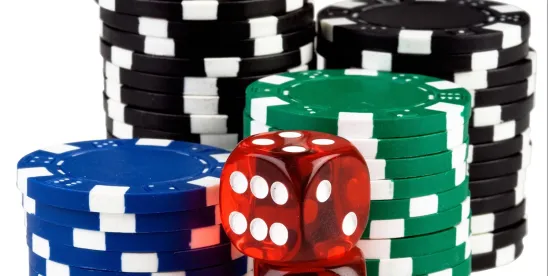The US Court of Appeals for the Federal Circuit applied the Alice/Mayo framework to assess whether claims directed to remote gambling were patent eligible under 35 U.S.C. § 101 and determined that the claims were directed to a patent-ineligible abstract idea and did not otherwise recite an inventive concept. Beteiro, LLC v. DraftKings Inc., Case Nos. 22-2275; -2277; -2278; -2279; -2281; -2283 (Fed. Cir. June 21, 2024) (Dyk, Prost, Stark, JJ.)
Beteiro owned several patents related to facilitating live gaming and/or gambling activity at a gaming venue remote from the user’s physical location so that a user can participate via a communication device away from the gaming venue location. In 2021 and 2022, Beteiro filed at least six patent infringement cases against the defendants. The district court granted the defendants’ motions to dismiss the claims on the grounds that the asserted claims were patent ineligible under § 101. Beteiro appealed.
The Federal Circuit agreed with the district court’s assessment of the claims under the first step of the Alice/Mayo framework and found that the claims “exhibit several features that are well-settled indicators of abstractness”:
- The claims “broadly recited generic steps of a kind” frequently held to be abstract, such as “detecting information, generating and transmitting a notification based on the information, receiving a message (bet request), determining (whether the bet is allowed based on location data), and processing information (allowing or disallowing the bet).”
- Claims like these, e., drafted with largely “result-focused functional language” without specifying how the purported invention achieves those results, are “almost always found to be ineligible.”
- Citing earlier decisions, the Court found broadly analogous claims were abstract as involving methods of providing particularized information to individuals based on their locations. The Court also noted in a footnote that several district courts have found remote-gaming patents analogous to Beteiro’s patents ineligible.
- The claimed methods were similar to “fundamental practices long prevalent,” an indicia that they are abstract and unpatentable. For example, the Federal Circuit referred to the district court’s analogy to real-world activities, including one step in the claims where “those accepting bets have always had to confirm that the bettor with whom they were dealing was located in a place where gambling was allowed.”
The Federal Circuit also agreed with the district court’s analysis of the second step of the Alice/Mayo framework and its conclusion that the claims failed to provide an inventive concept and “simply describe[d] a conventional business practice executed by generic computer components.” The Court disagreed with Beteiro’s argument that there was genuine dispute as to whether using geolocation and global positing as an “integral data point” in processing mobile wagers was conventional technology at the time of the earliest claimed priority date, 2002. Beteiro only briefly referred to conventional use of GPS in connection with several types of conventional computers but failed to describe differences between equipping GPS on a mobile phone versus any other described conventional computers. The asserted patents did not describe any advanced GPS mobile device technology or any hardware or software for providing GPS on a mobile device. The Court therefore concluded the patent applicant understood that a person of skill in the art (POSITA) would know what GPS was, how to include it on a mobile device and that its use for remote gambling was “routine, conventional, and well-understood.” The Court explained that “no amount of creative pleading could have succeeded in transforming the claims into patent-eligible subject matter.”
The Federal Circuit also explained that the patent examiner’s previous consideration of § 101 did not shield the claims from review, noting that the examiner applied pre-Alice analysis of § 101 patent eligibility.
Lauren Hong contributed to this article




 />i
/>i

